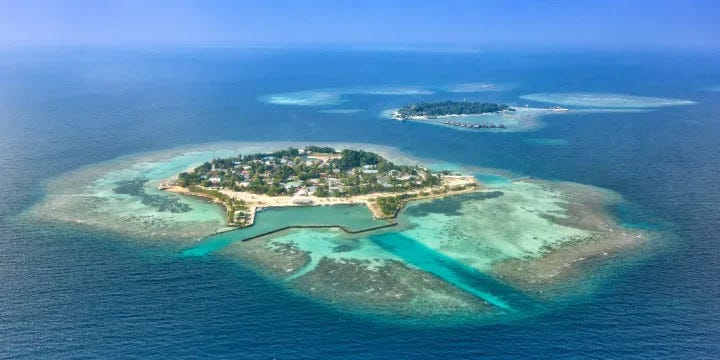“International Climate Litigation: A Trojan Horse for Global Climate Policy?”
“Let’s unpack this monumental case and consider whether it’s just another Trojan horse for sweeping global control.”
International Climate Litigation: A Trojan Horse for Global Climate Policy?
By Guest Blogger on December 9, 2024
In an unprecedented move, 99 countries have convened at the International Court of Justice (ICJ) in The Hague to seek an advisory opinion on climate change. Led by nations like Vanuatu, this legal campaign asks the ICJ to define the obligations of states to combat climate change and protect vulnerable countries. Proponents hail it as a milestone in the fight against global warming, while skeptics question its motives, effectiveness, and potential consequences. Let’s unpack this monumental case and consider whether it’s just another Trojan horse for sweeping global control.
The Case: Climate Liability on Trial
This case stems from a resolution passed by the United Nations General Assembly, urging the ICJ to clarify the legal responsibilities of states regarding climate change. It centers on two key questions:
To what extent are nations legally obligated to curb emissions and mitigate climate change?
What reparations are owed to nations disproportionately affected by climate impacts, particularly small island states facing rising sea levels?
The ICJ’s advisory opinion, while not legally binding, could set a powerful precedent, influencing future climate negotiations, lawsuits, and policies.
The Driving Force: Island Nations’ Desperate Gamble
Island nations like Vanuatu have long been vocal about their vulnerability to rising sea levels and extreme weather. They argue that wealthy, industrialized nations bear a disproportionate responsibility for a "climate crisis" and must act urgently to rectify the damage.
To those indoctrinated, their case seems compelling: why shouldn’t the major polluters compensate those most affected? But dig deeper, and the waters become murky. Sea level data, for example, shows far less consistent trends than alarmists suggest, with variability influenced by natural phenomena like tectonic activity and ocean circulation. Moreover, pinning global temperature changes solely on human emissions ignores the complexity of climate systems and the significant role of natural variability.
Maldives islands Bodufolhudhoo and Nika Island
What’s Really at Stake?
This case isn’t just about sea levels or reparations—it’s about power. If the ICJ sides with the claimants, it could embolden future lawsuits and create a de facto global regulatory framework for emissions. Here’s why that should give everyone pause:
National Sovereignty at Risk
The ICJ’s opinion could undermine the sovereignty of nations, allowing unelected judges to dictate climate policies. Countries like the United States and China, already resistant to binding international agreements, might see this as an overreach that infringes on their right to self-determination.The Financial Bottomless Pit
A ruling in favor of island nations could pave the way for trillions in climate reparations. Wealthy nations would face increasing demands for funding adaptation projects, potentially diverting resources from domestic priorities. Worse, such payments could incentivize corruption and mismanagement in recipient nations, where transparency and accountability are often lacking.Legal Chaos
If emissions become a basis for liability, it opens the floodgates for endless litigation. From corporations to individual governments, the potential defendants are countless. This isn’t justice; it’s a lawyer’s dream and a policymaker’s nightmare.
A Dubious Precedent: Historical Climate Lawsuits
The ICJ case isn’t the first attempt to weaponize the courts for climate activism. Similar efforts have had mixed results:
Urgenda Foundation v. Netherlands (2019): Dutch courts ruled that the government must reduce emissions to meet climate targets. The ruling was hailed as a victory but sparked backlash for prioritizing climate targets over democratic processes.
Juliana v. United States (2015): American youth sued the U.S. government for failing to protect them from climate change. While dramatic, the case has been bogged down in procedural wrangling, highlighting the limits of judicial activism.
These cases show that courts are ill-suited to address complex, multifaceted issues like climate change. Solutions require democratic debate, open scientific inquiry, and technological innovation—not judicial mandates.
Who Benefits?
Follow the money, and the picture becomes clearer. International climate litigation serves the interests of:
Global Bureaucracies
Organizations like the United Nations thrive on expanding their influence. Turning climate issues into legal obligations strengthens their role as global arbiters of policy.Developing Nations with Leverage
By framing themselves as victims, some developing nations hope to secure massive payouts from wealthier countries, effectively subsidizing their own development agendas under the guise of climate justice.Climate Activists
Litigation gives activists a high-profile platform to push their agenda, bypassing political opposition and public skepticism.
The Real Agenda Behind the Lawsuit
The ICJ case might be dressed up as a fight for justice, but scratch the surface, and it looks more like a power grab. This isn’t about protecting vulnerable nations—it’s about imposing a global climate regime that overrides national sovereignty, empties taxpayers’ wallets, and enriches a global elite.






